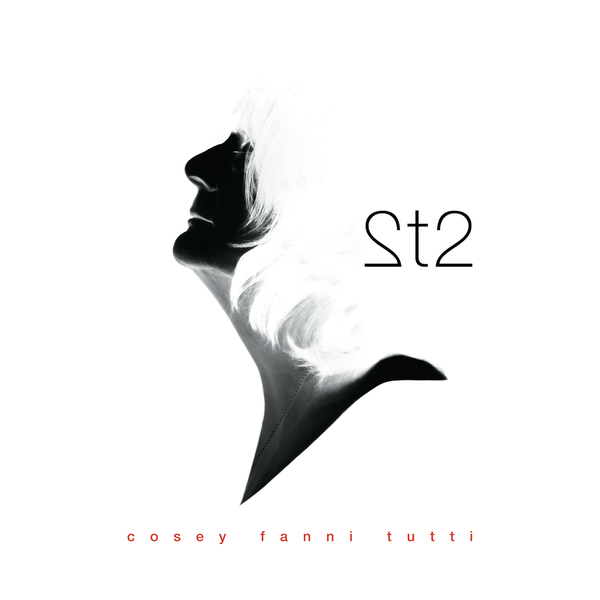It has been six years since Cosey Fanni Tutti’s last solo outing (and 42 since her first). This thinly veiled sequel, 2t2, continues in much the same fertile vein as her post-Throbbing Gristle output. At the same time, it also appears a little more guarded, as if the candid moments in her early days have left her more cautious.
Split into two distinct halves, 2t2 combines a back half of exploratory electronics with the more rhythmic, Chris & Cosey-esque opening tracks. Formed of mournful cornet cutting through slippery drones and pearlescent pads, the subtle centrepiece, ‘Stolen Time’, perfectly bridges these two worlds. Not that the mood throughout the record is wallowing in despondency. It is heavy, weighed down with a dark something that dares not speak its name, but Cosey perseveres to find a light through it all.
Penultimate track ‘Sonance’ could be lifted from the Mulholland Drive soundtrack, with its cinematic, spreading dronescapes. It’s the darkest and longest piece on the album, seeming to slide through subterranean shadows with silvery signals barely entering ear shot. Yet it still finds itself in a brighter space by the end of the track.
Inspired by Andy Christian’s artwork, the aching drones of ‘Threnody’ continues threads first heard in Tutti’s score for Caroline Catz’ 2021 film Delia Derbyshire: The Myths and the Legendary Tapes and developed further in her book, Re-Sisters. Here the descending notes suggest an emotional connection with Derbyshire that goes beyond fond reverence for one of Britain’s foremost electronic experimentalists.
The expressive collage that is the finale, ‘Limbic’, evokes battening down hatches to survive an unexpected storm. Quiet bedlam reigns in bleeped flurries and prowling distortion as hopeful notes gently flourish beneath a grizzled bluster of digital wind and chugging train-like rhythms stampeding along.
The wobbly uncertainty of ‘Respair’, its title a portmanteau of respite / repair / and maybe even despair, seems mismatched with the muted yet punchy kick drum. As it grows into it, however, these disparate parts coalesce comfortingly. The pieces slot together. It trusts in the process, gelling satisfyingly to provide a little optimism amongst the gloom.
It’s the opener ‘Curæ’ (Latin for ‘Care’), though, which seems most revealing. Low-end throbs and alternating bloops motor along like a New Age Tron. Tutti’s voice is breathy and masked, warped in a manner reminiscent of Kaitlyn Aurelia Smith, as if she’s processing something that’s not for our ears but is best salved through sound. A healing of unspoken loss.


